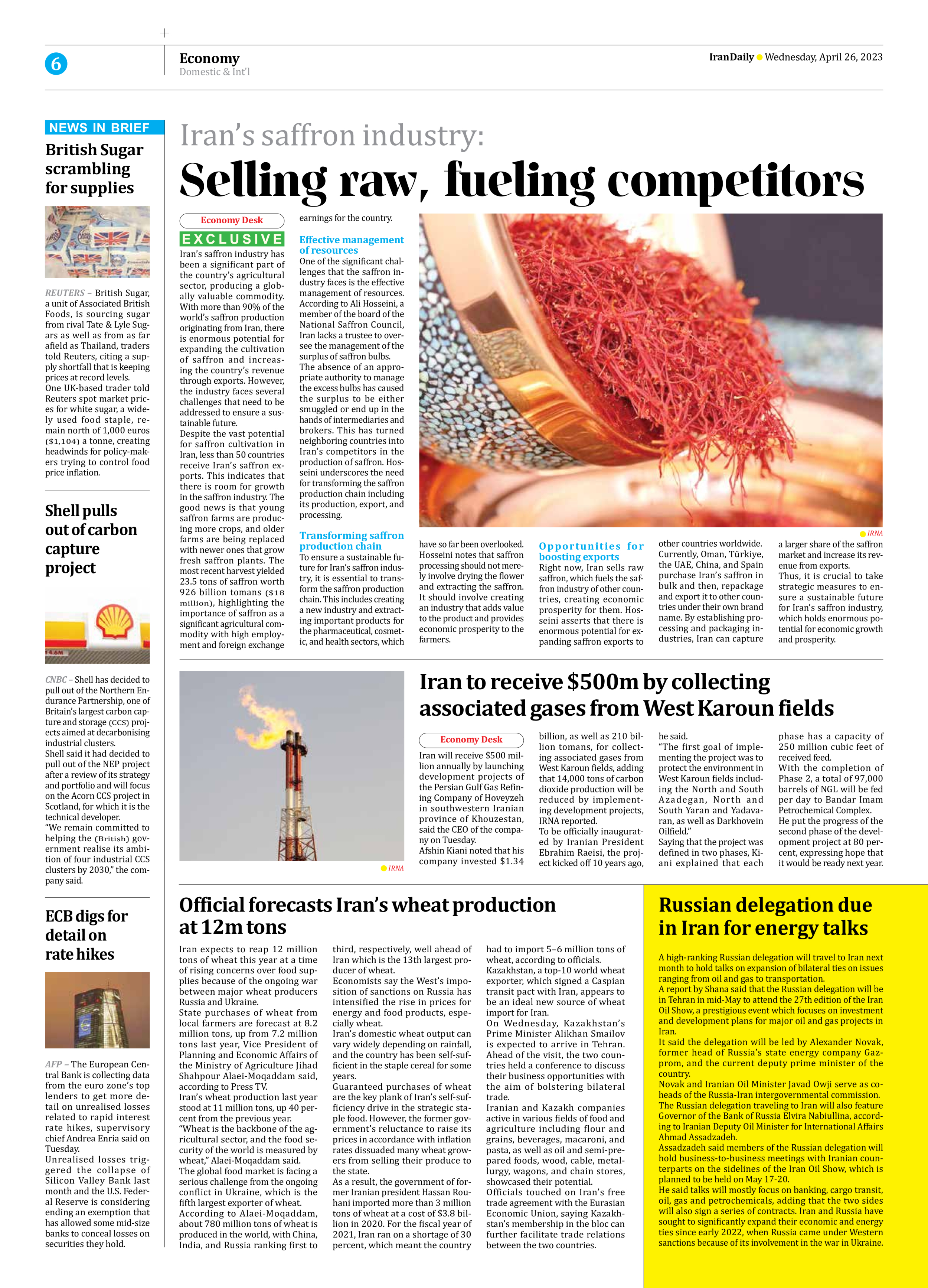
Official forecasts Iran’s wheat production at 12m tons
Iran expects to reap 12 million tons of wheat this year at a time of rising concerns over food supplies because of the ongoing war between major wheat producers Russia and Ukraine.
State purchases of wheat from local farmers are forecast at 8.2 million tons, up from 7.2 million tons last year, Vice President of Planning and Economic Affairs of the Ministry of Agriculture Jihad Shahpour Alaei-Moqaddam said, according to Press TV.
Iran’s wheat production last year stood at 11 million tons, up 40 percent from the previous year.
“Wheat is the backbone of the agricultural sector, and the food security of the world is measured by wheat,” Alaei-Moqaddam said.
The global food market is facing a serious challenge from the ongoing conflict in Ukraine, which is the fifth largest exporter of wheat.
According to Alaei-Moqaddam, about 780 million tons of wheat is produced in the world, with China, India, and Russia ranking first to third, respectively, well ahead of Iran which is the 13th largest producer of wheat.
Economists say the West’s imposition of sanctions on Russia has intensified the rise in prices for energy and food products, especially wheat.
Iran’s domestic wheat output can vary widely depending on rainfall, and the country has been self-sufficient in the staple cereal for some years.
Guaranteed purchases of wheat are the key plank of Iran’s self-sufficiency drive in the strategic staple food. However, the former government’s reluctance to raise its prices in accordance with inflation rates dissuaded many wheat growers from selling their produce to the state.
As a result, the government of former Iranian president Hassan Rouhani imported more than 3 million tons of wheat at a cost of $3.8 billion in 2020. For the fiscal year of 2021, Iran ran on a shortage of 30 percent, which meant the country had to import 5–6 million tons of wheat, according to officials.
Kazakhstan, a top-10 world wheat exporter, which signed a Caspian transit pact with Iran, appears to be an ideal new source of wheat import for Iran.
On Wednesday, Kazakhstan’s Prime Minister Alikhan Smailov is expected to arrive in Tehran. Ahead of the visit, the two countries held a conference to discuss their business opportunities with the aim of bolstering bilateral trade.
Iranian and Kazakh companies active in various fields of food and agriculture including flour and grains, beverages, macaroni, and pasta, as well as oil and semi-prepared foods, wood, cable, metallurgy, wagons, and chain stores, showcased their potential.
Officials touched on Iran’s free trade agreement with the Eurasian Economic Union, saying Kazakhstan’s membership in the bloc can further facilitate trade relations between the two countries.







